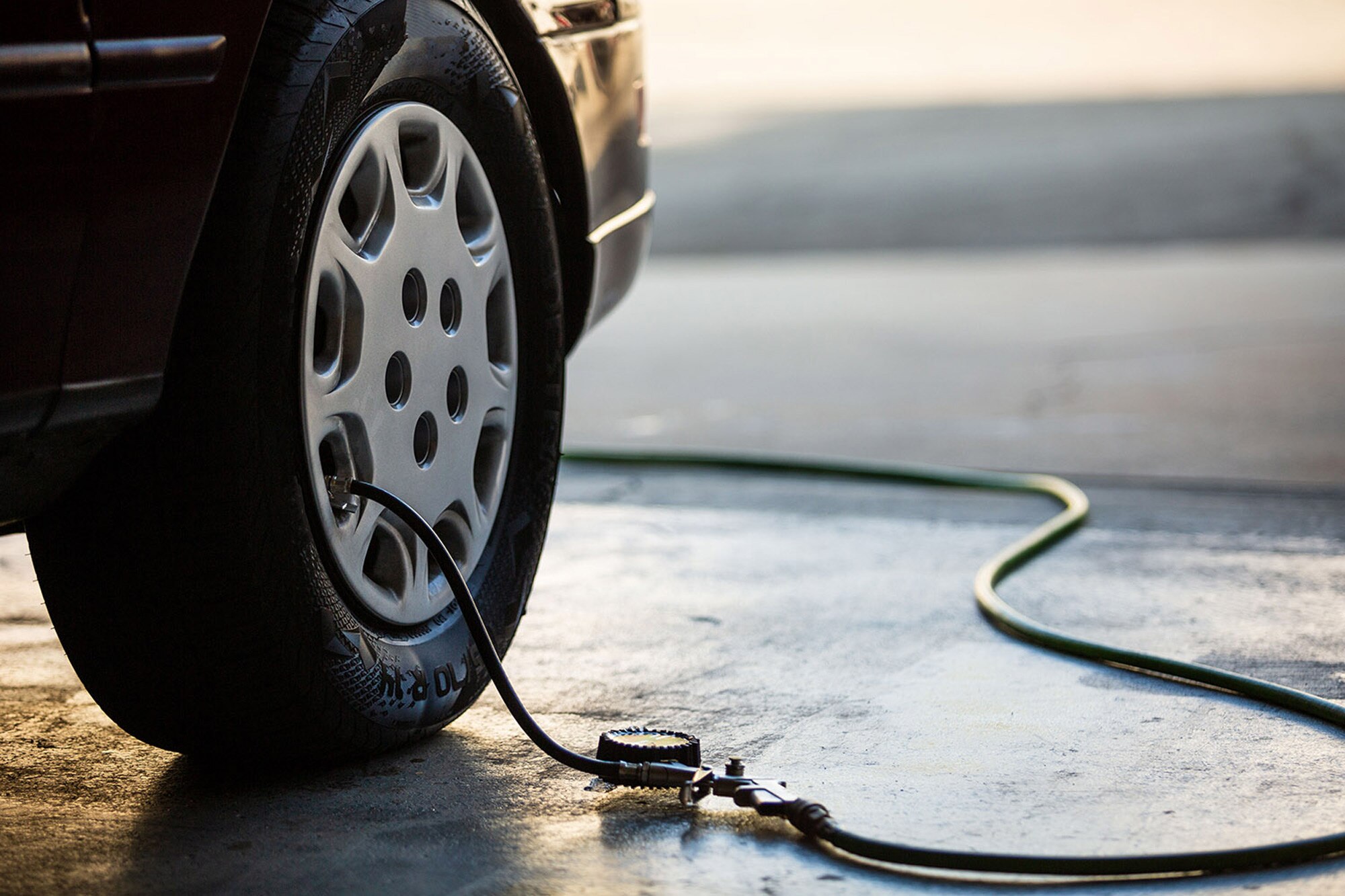What to Know About Mobile Tire Service
This "comes-to-you" business model is a timesaver when your tires are in need of repair.
 Manuel Carillo III | Capital One
Manuel Carillo III | Capital One
QuickTakes:
Discovering you have a flat tire can really put a damper on your day. The same is true for a slow leak that gradually sinks your car where it's parked or a steering wheel that vibrates because your wheels were jolted out of whack by a pothole.
Fixing these problems used to mean making an appointment at a tire shop and then rescheduling your life around that entry in your calendar. That doesn't have to be the case anymore.
The emergence of mobile service companies has made it possible to keep your wheels and tires in good health without having to sacrifice big chunks of time to the uncertainties of a shop's schedule.
What Is Mobile Tire Service?
Mobile tire service is the catch-all term for companies that come to your location to repair, replace, or otherwise work on your vehicle's tires and wheels. Instead of operating out of a traditional brick-and-mortar garage, they load up a cargo van or a truck with all the necessary gear and tires and meet you wherever is convenient for you.
What to Expect From a Mobile Tire Service
The advent of large-capacity batteries and affordable power management equipment has made it feasible to equip vehicles with portable versions of all major tools used in tire repair. As a result, there are various types of tire-related work a mobile professional can perform.
That includes basic tire rotations; seasonal tasks such swapping summer and winter tires; and common repairs such as fixing a slow leak, installing a new valve stem, or patching a puncture. A mobile pro can even replace and reprogram tire-pressure monitoring sensors.
Need a full tire swap? You can have that done in your driveway. The mobile tech will mount new tires on your existing wheels — or another set — and dispose of your old tires. During the swap, your wheels will be balanced just as they would be at a shop.
Some companies will even evaluate your tires and provide a "tire health" readout after the balancing is completed.
The Pros of Mobile Tire Service
The clearest advantage of using a mobile tire service is convenience. Instead of booking an appointment, crossing your fingers that your vehicle will be seen on time, and then waiting in a lounge while technicians work through their job list for the day, you can instead schedule a visit at your home or place of work at your convenience.
When the tire-repair pros come to you, there's no need to interrupt your plans, which is a bonus for anyone already juggling the demands of family and work.
If your vehicle is disabled due to a flat tire or a damaged rim, calling a mobile tire service also means you won't have to pay to be towed to a shop or jack the car up yourself and remove the wheel before finding your own way to a shop. In an emergency, a mobile tire service can even act somewhat like a roadside-assistance program with the added benefit of being able to bring you a new tire if you don't happen to have a spare available.
Some mobile tire repair operations offer 24-hour service seven days a week. Anyone who has ever tried to find a tire shop open after standard business hours or on the weekend will understand how helpful it would be to get your vehicle fixed before you have to go to work the next morning.
Mobile services typically cost the same as — or sometimes less than — visiting a tire shop.
The Cons of Mobile Tire Service
Mobile tire repair isn't always the best option. Sometimes it's not an option at all. If it's the dead of winter and you can't provide a space for the technician to work that's free of ice and snow, you might not be able to get the job done on site.
Even in the best weather conditions, you'll have to make sure your vehicle is in a safe location. If your car is on a steep incline or wedged in among other vehicles, it might not be possible to raise it safely. You'll need to take traffic into account, too. Busy roadsides or bustling parking lots could make it impossible for a mobile tech to work safely.
You're also limited to the inventory of tires that are in the van or truck when it arrives at your location. Since you will likely speak with the technician ahead of time about your particular repair needs, this usually isn't a problem. But any errors — a miscommunication about tire size, for example — could leave you stuck waiting for a replacement tire to show up. A shop, on the other hand, could simply pull the correct tire out of its inventory.
Finally, if the technician discovers an adjacent problem while working on your tires — say, a brake or suspension problem — it's unlikely you'll be able to get that fixed on the spot. This could mean a visit to a repair shop in addition to the mobile appointment.



